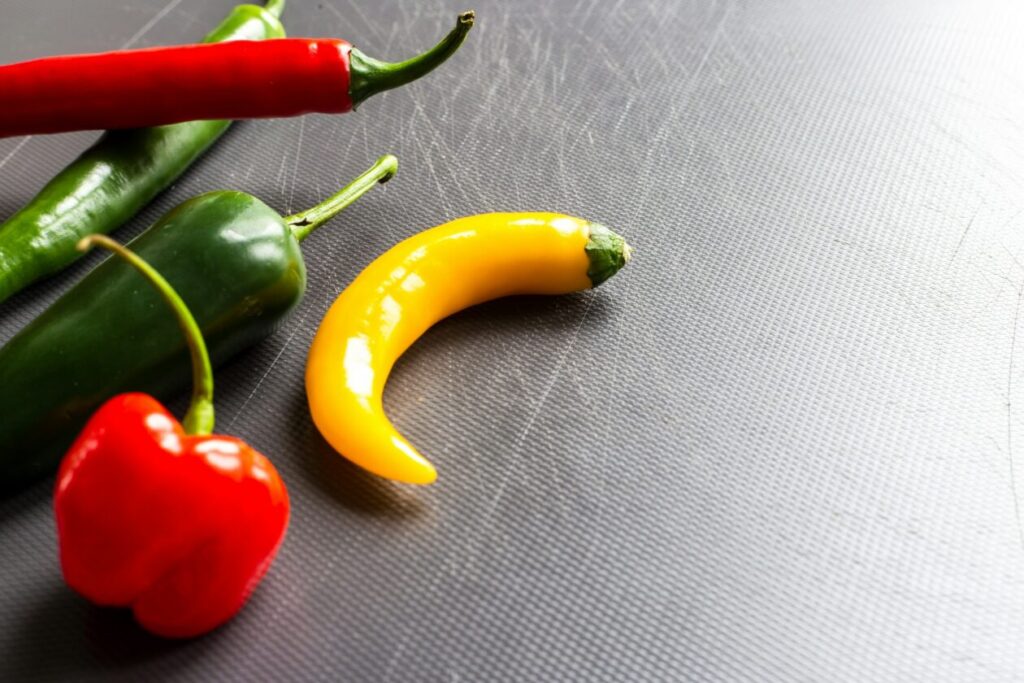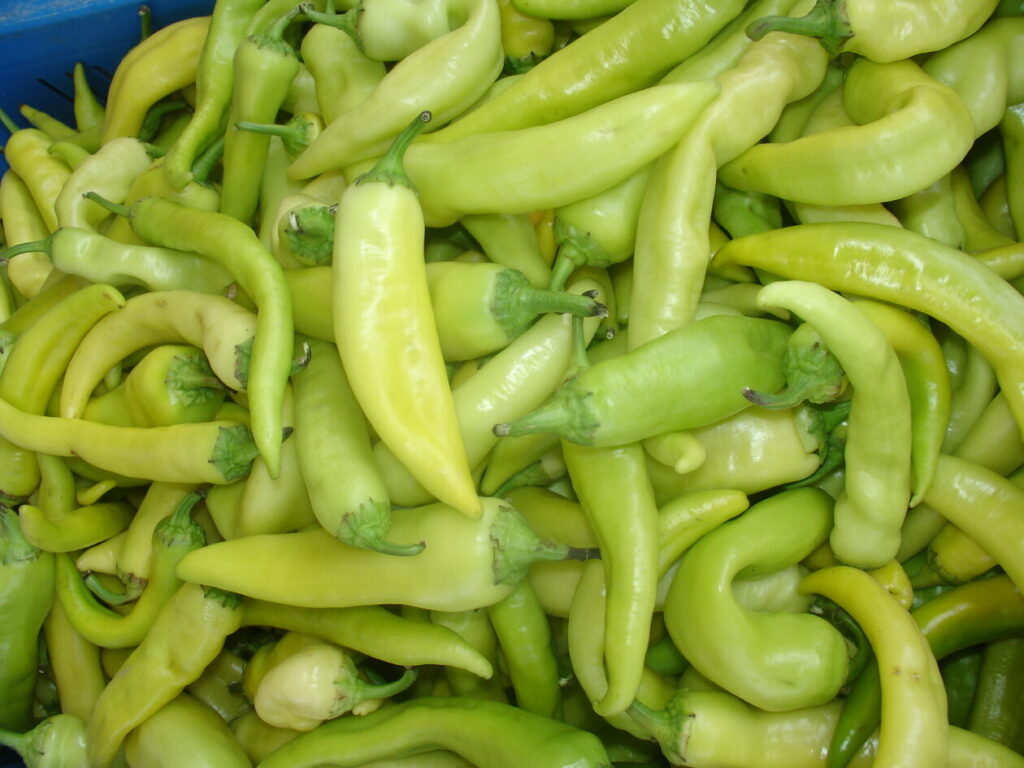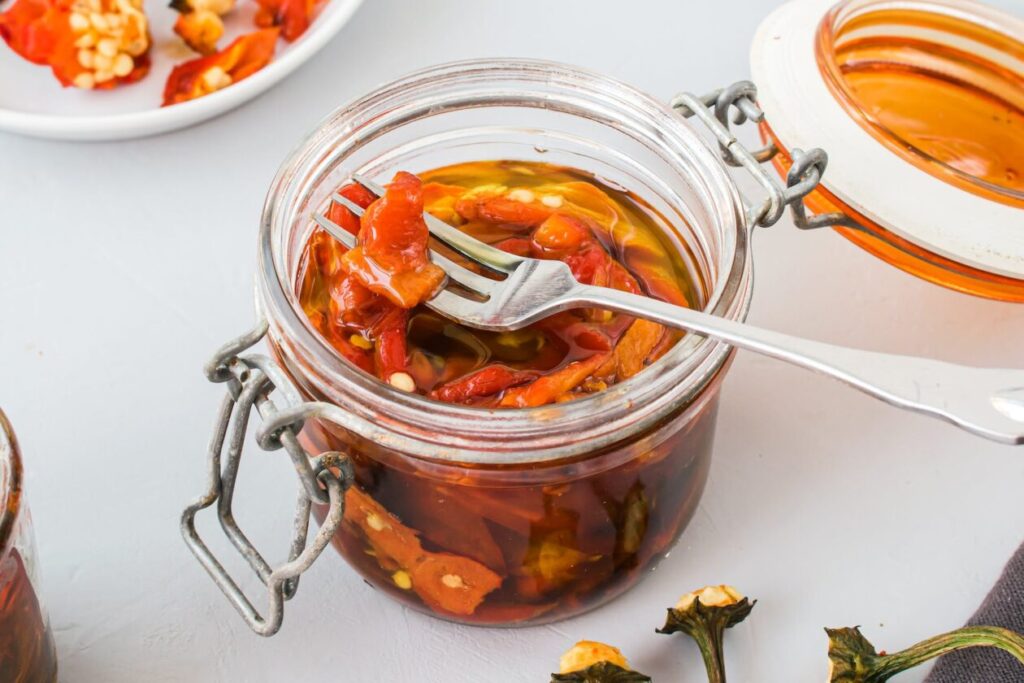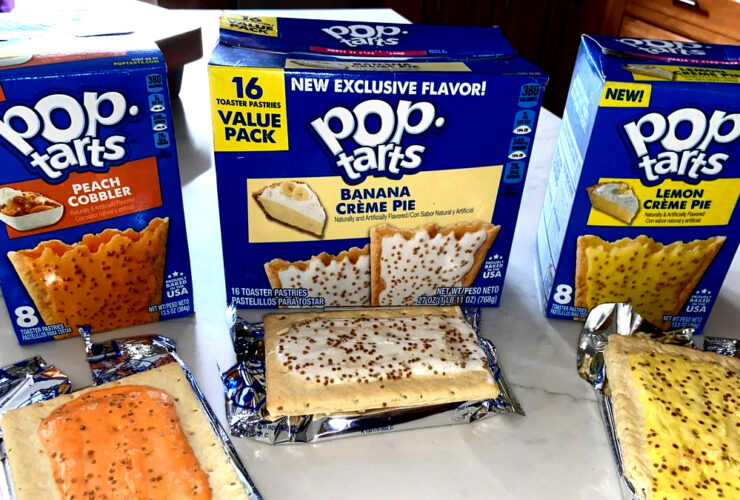Introduction
Are you wondering if that hot sauce you love so much for salads and sandwiches could be a hidden weapon in your fight against obesity? Do you ponder, “Are banana peppers good for weight loss?” Let’s explore the world of banana peppers and learn the real story behind how peppers can help you lose those extra pounds.
Banana peppers are common in many international cuisines because of their vivid yellow color and mild heat. With their slightly sweet and tangy flavor, banana peppers add a delightful kick to dishes without overwhelming the palate. Beyond their taste, banana peppers offer several health benefits as they are rich in potassium, fiber, and vitamins A and C. They are a favorite of both professional chefs and home cooks due to their culinary adaptability. They can be grilled to perfection, pickled for a tart crunch, or sliced fresh and added to salads.
In this investigation, we’ll examine the science underlying the possible contribution of banana peppers to weight loss. Discover how including banana peppers in your diet can aid in weight loss, from their low-calorie count to the metabolism-boosting qualities of capsaicin, which gives them their hot bite. Come along as we explore the many facets of this tasty ingredient and learn about its undiscovered advantages for a happier, healthier you.
Understanding Banana Peppers: Taste, Nutrition, and Cultivation
Though sometimes confused with their hotter siblings, banana peppers are distinguished in the culinary world by their bright yellow hue and mild heat. Despite their name, banana peppers are less similar to the fruit other than longer. These peppers, a member of the Capsicum annuum genus, have a tangy-sweet flavor characteristic instead of a fruity sweetness, like bananas. Though their misleading name has created misconceptions about their flavor and culinary applications, banana peppers are a very adaptable addition to various foods, from salads to sandwiches, adding a touch of spice without overpowering.
Banana peppers have an outstanding nutritional profile that makes them stand out when considering their possible function in weight management. Because these peppers are low in calories, they complement meals for people trying to lose weight. Banana peppers are also an excellent source of fiber, potassium, and vitamins A and C, among other important components. Fiber improves digestive health and helps you feel fuller for longer, which lowers your overall calorie intake. Potassium helps regulate blood pressure and muscular function. Banana peppers also contain vitamins A and C, which support a healthy lifestyle that aids in weight loss by boosting immunity and general well-being.
Banana peppers are grown in warm climates worldwide and are simple to cultivate for home and commercial use. They do best in well-drained soil with lots of sunlight. Their versatility even goes into the kitchen, where they are used as a tasty element in various recipes. Banana peppers are a flexible and nutrient-dense complement to a well-balanced diet, whether grilled to perfection, pickled for a tart crunch, or sliced fresh to dress salads. They are a mainstay in world cuisines due to their versatility in complementing various flavors and giving meals depth, complexity, and vital nutrients that help with weight loss objectives.
When people know the unique qualities, health advantages, and culinary applications of banana peppers, they can include these colorful peppers in a diet that promotes a healthy weight-management strategy. Because of their high nutritional profile, low-calorie content, and variety of culinary applications, banana peppers are a tasty and health-conscious choice for anyone trying to reach and stay within a healthy weight range. Banana peppers are a delicious and nourishing addition to any meal, whether they are eaten raw, cooked, or preserved. As such, they are an important tool in improving health and well-being.
Unraveling the Weight Loss Potential of Banana Peppers

Banana peppers are a flavorful addition to many dishes and offer several nutritional benefits that can support weight loss efforts. Here’s a closer look at the key nutrition facts you should know about banana peppers:
- Calories: 27 kcal per 100 grams
- Vitamin C: 139% of the Daily Value (DV) per 100 grams
- Vitamin B6: 19% of the DV per 100 grams
- Fiber: 2 grams per 100 grams
- Fat: 0.3 grams per 100 grams
- Protein: 1.7 grams per 100 grams
- Potassium: 256 mg per 100 grams
- Vitamin A: 17 μg per 100 grams
- Vitamin K: Amount not specified
- Magnesium: 17 mg per 100 grams
Let’s explore some key aspects of banana peppers that make them beneficial for weight loss:
Low Glycemic Index and Carbohydrate Content
Because of their low glycemic index and high carbohydrate content, banana peppers provide a special benefit for people trying to control their weight. Banana peppers have a low glycemic index, so they gradually release glucose into the circulation. This helps to maintain blood sugar levels and avoid spikes, which can cause cravings and overindulgence. They are also a great option for people on low-carb or ketogenic diets due to their low carbohydrate content, which lets people enjoy tasty meals without sacrificing their weight loss objectives. People can keep their blood sugar levels steady by eating banana peppers, which lessens the chance of cravings and hunger pangs—which frequently thwart attempts to lose weight.
High Fiber Content
The high fiber content of banana peppers is another important feature that may help with weight loss. Fiber is essential for satiety, or the sensation of fullness, which can help people manage their appetite and consume fewer calories overall. Furthermore, dietary fiber ensures effective nutrition absorption and waste disposal by encouraging regular bowel movements and reducing constipation. People can enhance their fiber intake and aid in weight loss by adding banana peppers to their meals. This also helps to maintain normal digestive function. Raw or cooked banana peppers are a tasty and nourishing method to increase fiber intake and promote general health.
Capsaicin Content
The capsaicin concentration of banana peppers is one of their most noteworthy qualities that may help with weight loss. The fiery substance in peppers, capsaicin, has been demonstrated to accelerate metabolism and improve fat burning. Capsaicin helps the body burn more calories even at rest by enhancing thermogenesis or the body’s capacity to produce heat. Moreover, capsaicin may lessen calorie intake and suppress appetite, aiding in weight loss. Banana peppers are a great complement to any weight loss regimen since they can naturally boost metabolism and encourage fat reduction in people when added to meals.
Essential Vitamins and Minerals
Banana peppers help with weight loss and provide a wealth of vital vitamins and minerals that promote general health and well-being. These peppers are especially high in vitamin A, promoting healthy skin and eyesight, and vitamin C, essential for immune system function and collagen synthesis. In addition, potassium—a necessary mineral that aids in controlling blood pressure and muscular function—is present in banana peppers. People can assist their weight reduction efforts and ensure they get the nutrients they need for optimum health and vitality by incorporating banana peppers into their diet. Banana peppers are a tasty and nutrient-dense addition to any diet plan that aims to promote overall well-being because of their weight reduction advantages and nutrient density mix.
In conclusion, banana peppers provide several advantages for anyone trying to get healthier and shed some pounds. Because of their high fiber content, capsaicin level, low glycemic index, low carbohydrate content, and plenty of vital vitamins and minerals, banana peppers offer a comprehensive weight loss strategy considering dietary and metabolic variables. People can support their weight reduction objectives while consuming tasty and nutritious recipes that increase satiety, speed up metabolism, and improve general well-being by adding banana peppers.
Incorporating Banana Peppers into a Weight Loss Diet
Incorporating banana peppers into a diet plan for weight loss requires ingenuity. These adaptable peppers are perfect for a wide range of culinary applications, providing countless ways to enhance the taste and spiciness of your food. Consider pickling banana peppers with spices, vinegar, and garlic for a crunchy and tart snack. You may eat pickled banana peppers or as an added flavor boost on salads, sandwiches, and antipasto platters. Alternatively, stuffing banana peppers with quinoa, veggies, and lean minced turkey will make a filling and high-protein meal. Banana peppers can also be added raw to salads, wraps, or tacos for a cool, spicy touch. This is a lighter option.
An easy and tasty method to increase the nutritional value of your meals and help you achieve your weight loss goals is to add banana peppers to your favorite recipes. Combine mixed greens, sliced banana peppers, cherry tomatoes, cucumber, and grilled chicken or tofu to make a filling and healthy salad. Drizzle with a simple vinaigrette of lemon juice, olive oil, and fresh herbs for a taste explosion. Add banana peppers for a gentle spice and depth of flavor to soups, stews, or chili when you need something warm and comforting. Grilled banana peppers combined with lean protein (chicken, fish, or tofu) and roasted veggies provide a satisfying, well-balanced dinner that’s quick and healthful.
While it might not be the first item that springs to mind when considering weight loss, banana pepper juice can be a secret weapon for giving your food more taste and depth without adding extra calories. To add a tangy and spicy touch to chicken, fish, or vegetables, marinate them in banana pepper juice.
Alternatively, combine banana pepper juice with olive oil, garlic, and herbs to make a zesty dressing for salads, grain bowls, or roasted veggies. Mix vodka, lime juice, and soda water with banana pepper juice to create a spicy take on a traditional cocktail that is both refreshing and low in calories. Banana pepper juice can help you lose weight while providing you with robust, colorful tastes for your cooking and drink ideas.
Debunking Myths and Addressing Concerns

There’s a widespread misperception that all banana pepper products—especially those in jars or cans—have unhealthful preservatives or additives that negate any potential health advantages. It’s crucial to differentiate between processed and fresh banana peppers, though. Although many commercially processed banana pepper products might include preservatives like calcium chloride or sodium benzoate, regulatory bodies typically consider these additives harmless if used correctly. However, fresh banana peppers are always the greatest option for individuals worried about additives. Fresh banana peppers are a more natural and nutrient-dense alternative to include in your diet because they don’t contain any additives.
The idea that banana peppers are toxic or dangerous is another common misperception. This fallacy might have origins in confusion with other pepper kinds, including bell or chili peppers, which can irritate or induce stomach pain when ingested in high numbers. On the other hand, banana peppers are commonly used in many different cuisines worldwide and are completely safe to eat. Although in far lower quantities than other peppers, banana peppers also contain capsaicin, which gives them a fiery flavor. Banana peppers can be eaten as part of a balanced diet and are generally considered safe for consumption unless you have a special allergy or sensitivity to peppers.
Although most individuals can safely eat banana peppers, knowing of potential allergies or sensitivities is important. Itching, swelling, or trouble breathing are among the allergic symptoms that some people may have to peppers, particularly if they are also sensitive to other nightshade plants like potatoes or tomatoes. It’s best to avoid eating banana peppers or any foods containing them if you have a known pepper allergy or think you might be sensitive to them. Furthermore, get medical help immediately if eating banana peppers causes negative side effects. In conclusion, even though banana peppers have many health advantages, it’s critical to recognize and honor personal sensitivity levels to ensure safe ingestion.
Are Banana Peppers Good for Weight Loss?

In short, yes, banana peppers can benefit weight loss. These peppers are low in calories and rich in nutrients, making them an excellent addition to a weight-loss diet. Their mild heat can also flavor dishes without adding extra calories or fat.
When delving deeper, banana peppers offer several qualities conducive to weight loss. Firstly, they are low in calories, with approximately 33 calories per 100 grams, making them an ideal choice for reducing calorie intake. Additionally, banana peppers are high in fiber, promoting feelings of fullness and aiding digestion, helping to prevent overeating. Moreover, banana peppers contain capsaicin, a compound that gives them their spicy flavor and has been shown to boost metabolism and enhance fat burning. Furthermore, these peppers are rich in vitamins A and C, essential in supporting overall health and well-being, including maintaining a healthy weight.
In summary, incorporating banana peppers into your diet can be a beneficial strategy for weight loss. Their low-calorie and high nutrient content and their metabolism-boosting properties make them a valuable addition to any weight loss plan. Whether enjoyed raw in salads, pickled for a tangy crunch, or added to cooked dishes for extra flavor, banana peppers offer versatility and nutritional benefits that can support your weight loss goals.
FAQs about Banana Peppers and Weight Loss:
Q: Do banana peppers help you lose weight?
A: Yes, banana peppers can aid in weight loss due to their low-calorie and high-nutrient content. They are rich in fiber, which promotes feelings of fullness, and capsaicin, a compound that boosts metabolism and enhances fat burning.
Q: Are banana peppers inflammatory?
A: No, banana peppers are not inflammatory. They contain antioxidants like vitamins A and C, which can help reduce inflammation.
Q: Are banana peppers high in carbs?
A: No, banana peppers are not high in carbs. They are relatively low in carbohydrates, making them suitable for low-carb diets.
Q: Can you eat too many banana peppers?
A: While banana peppers are nutritious, consuming them excessively may lead to digestive discomfort for some individuals due to their fiber content. Moderation is key.
Q: Do peppers burn belly fat?
A: Peppers contain capsaicin, which has been shown to boost metabolism and enhance fat burning. While they may contribute to overall weight loss, spot reduction of belly fat is not scientifically proven.
Q: Do peppers burn fat?
A: Peppers, particularly those containing capsaicin like banana peppers, can help enhance fat burning and support weight loss when combined with a healthy diet and regular exercise.
Q: Can I eat banana peppers on keto?
A: Yes, banana peppers can be included in a keto diet as they are low in carbs and can add flavor and nutrients to keto-friendly meals.
Q: Can you eat raw banana peppers?
A: Yes, banana peppers can be eaten raw. They have a mild, slightly sweet flavor and are often enjoyed fresh in salads or sandwiches.
Q: Are banana peppers hot or sweet?
A: Banana peppers can vary in heat level but are generally mild with a slight sweetness. They are less spicy than some other pepper varieties.
Q: Are peppers OK for keto?
A: Yes, many pepper varieties, including banana peppers, are suitable for a keto diet due to their low carbohydrate content.
Q: Are peppers carbs or protein?
A: Peppers are primarily composed of carbohydrates, with smaller amounts of protein and fat.
Q: How many calories are in 3 banana peppers?
A: Three banana peppers typically contain approximately 30 to 40 calories, depending on their size and preparation.
Q: What pepper burns fat?
A: Peppers containing capsaicin, such as jalapenos, serranos, and banana peppers, boost metabolism and burn fat.
Q: Which pepper is best for weight loss?
A: All peppers can contribute to weight loss when incorporated into a balanced diet and active lifestyle. Choose varieties you enjoy and consider adding them to meals for flavor and nutrition.
Q: Banana pepper calories per 100g?
A: Banana peppers contain approximately 33 calories per 100 grams, making them a low-calorie option for those looking to manage their weight.
Q: Are pickled banana peppers healthy?
A: Pickled banana peppers retain many nutrients found in fresh peppers but may be higher in sodium due to the pickling process. Enjoy them in moderation as part of a balanced diet.
Q: Are banana peppers good for your kidneys?
A: Banana peppers are a source of potassium, which is important for kidney health. However, individuals with kidney issues should consult a healthcare professional regarding their dietary needs.
Q: Are banana peppers good for your heart?
A: Yes, banana peppers contain nutrients like vitamins A and C, which support heart health. Additionally, their low-calorie and high-fiber content can contribute to overall cardiovascular wellness.
Q: Benefits of pickled banana peppers?
A: Pickled banana peppers offer a tangy flavor and may contain beneficial probiotics from the fermentation process. However, they may be higher in sodium, so consume them in moderation.
Q: Are banana peppers good for cholesterol?
A: Banana peppers contain fiber and antioxidants, which can contribute to overall heart health and may help manage cholesterol levels as part of a balanced diet.
Q: Are banana peppers high in sodium?
A: Fresh banana peppers are naturally low in sodium, but pickled varieties may be higher due to the pickling process. Always check labels for sodium content and consume in moderation.
Conclusion
During our investigation, we discovered the many uses of banana peppers in supporting general health and weight loss. These colorful peppers have an amazing nutritional profile and are bursting with flavor. Banana peppers contribute a wealth of vital vitamins and minerals and are low in calories, making them a wonderful supplement to any weight loss program. Their high fiber content contributes to satiety, and their heat-producing ingredient, capsaicin, can increase metabolism and improve fat burning. You may assist your weight loss objectives while indulging in mouthwatering flavors by including banana peppers.
As we draw to a close, I urge you to embrace including banana peppers in your regular diet. In addition to helping people lose weight, these peppers give a variety of recipes a great flavor boost. Banana peppers are a versatile food that can be eaten in various ways. They can be grilled to perfection, pickled for a tart crunch, or eaten raw in salads. You may help your journey towards a better life by adding them to your meals, improving their taste, and increasing your intake of vital nutrients.
It’s time to get creative in the kitchen and try banana-pepper dishes. Discover fresh and inventive ways to include these nutrient-dense peppers in your favorite recipes. Whatever your taste in food—spicy salsas, thick soups, or flavorful stir-fries—there’s a banana pepper dish out there just for you. Celebrate banana peppers’ adaptability and nutritional advantages as you progress toward a healthy existence. Begin your culinary journey now and savor the delicious benefits of including banana peppers in your diet.
Reference
WebMD Editorial Contributors. (2020, August 19). Health Benefits of Banana Peppers. WebMD; WebMD. https://www.webmd.com/diet/health-benefits-banana-peppers
Bray, M. (2017, June 9). Banana Pepper Nutrition: How Healthy Are They? PepperScale. https://pepperscale.com/banana-pepper-nutrition/
Health Benefits of Banana Peppers: A Comprehensive Guide. (2023, September 11). Gina Burgess. https://ginabnutrition.com/veganism/health-benefits-of-banana-peppers-a-comprehensive-guide/
Was this helpful?

Joseph Emb, RDN
Founder of StyleVitally.com | Registered Dietitian & Wellness Advocate
What I Cover:
I’m passionate about connecting nutrition science and everyday wellness to help people live healthier, more vibrant lives. I write about evidence-based nutrition, mindful eating, sustainable lifestyles, and holistic well-being at StyleVitally.com.
My Background:
The University of Texas in Austin, where I earned my Dietetics diploma, laid the groundwork for my nutrition and health career. My training and hands-on experience taught me the science and art of using nutrition to enhance health and well-being.
Professional Journey:
I’m an RDN with lots of experience. I’ve helped people seeking tailored nutritional recommendations in clinical settings and community outreach programs. My constant learning and professional development ensure that my recommendations are always based on the latest evidence.
Ethical Commitment:
My practice prioritizes integrity. My content is transparent and objective, following the most significant ethical standards. I can give my audience unbiased advice because I’m not affiliated with food businesses or industry associations. I want to help people make informed health decisions that match their values and ambitions.
Join Me on the Wellness Journey:
Join me on the path to vitality and well-being, whether facing nutritional issues, seeking sustainable lifestyle changes, or simply wanting a better, happier you. We’ll discover how diet, mindfulness, and holistic well-being can maximize your potential.









